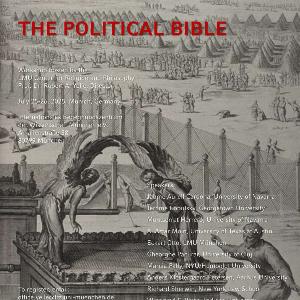
What if we were to take up again the urgent task of theorizing our politics by returning to reflect on our religious traditions? This does not even require being a believer, because the Bible and its many interpretations also constitute an empirical archive of human experiences and, again, may be read toward different ends. Even beginning a conversation might go some modest distance toward bridging what would otherwise be an unbridgeable divide between so-called religionists and secularists.
Whether our goal is to vindicate the scriptural tradition or, alternatively, to condemn the way that it has been used; to interrogate the tradition as a means of diagnosing better the human condition and its social disorders or, alternatively, of identifying a course of treatment that might cure our present ills: there is no good reason not to make the attempt. Even the recognition that the Bible is parochial and limited, and that we now live in an increasingly pluralistic world, is no cause to refrain from such a beginning.
Speakers:
Jaume Aurell Cardona, University of Navarra
Jerome Copulsky, Georgetown University
Montserrat Herrero, University of Navarra
A. Azfar Moin, University of Texas at Austin
Eckart Otto, LMU München
Gheorghe Pacurar, University of Cluj
Marcia Pally, NYU/Humboldt University
Anders Klostergaard Petersen, Aarhus University
Richard Sherwin, New York Law School
Winnifred Sullivan, Indiana University
Jacqueline Vayntrub, Yale University
Marcelo Wall, LMU Munich
Carsten Wilke, CEU Vienna
Robert Yelle, LMU Munich
To register, email: office.yelle@lrz.uni-muenchen.de
